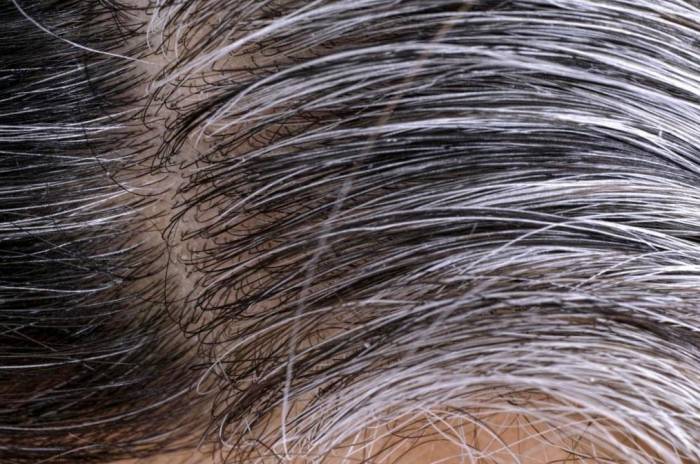Premature hair greying treatment
Hair greying is a natural part of the aging process, typically starting in the mid-30s for most individuals. However, premature hair greying, defined as the onset of grey hair before the age of 20 in Caucasians and before 30 in African Americans, can be a source of distress and concern for many. While genetics play a significant role in hair color changes, various other factors contribute to premature greying. This article explores the causes of premature hair greying, preventive measures, and treatment options available to manage this condition.

Causes of Premature Hair Greying
- Genetics: Family history is one of the most significant factors in premature greying. If your parents or grandparents experienced early greying, it is likely you might too.
- Nutritional Deficiencies: Deficiencies in certain vitamins and minerals, such as vitamin B12, iron, copper, and zinc, can lead to premature hair greying. These nutrients are essential for maintaining healthy hair pigmentation.
- Oxidative Stress: Oxidative stress results from an imbalance between free radicals and antioxidants in the body. This imbalance can damage melanocytes, the cells responsible for producing hair pigment.
- Medical Conditions: Certain medical conditions like autoimmune diseases (e.g., vitiligo and alopecia areata), thyroid disorders, and pernicious anemia can cause early greying.
- Lifestyle Factors: Stress, smoking, and exposure to pollutants can accelerate the greying process. Smoking, in particular, has been linked to a significant increase in the likelihood of developing grey hair prematurely.
- Chemical Exposure: Frequent use of chemical hair treatments, dyes, and harsh shampoos can damage hair follicles and potentially lead to premature greying.
Prevention of Premature Hair Greying
While you cannot change your genetics, there are several steps you can take to potentially slow down the greying process:
- Balanced Diet: Ensure your diet includes foods rich in vitamins and minerals essential for hair health. Incorporate foods high in vitamin B12 (such as fish, meat, and dairy), iron (such as leafy greens and beans), copper (such as nuts and seeds), and zinc (such as shellfish and legumes).
- Antioxidant-rich Foods: Consuming foods high in antioxidants can help combat oxidative stress. Berries, green tea, dark chocolate, and nuts are excellent sources of antioxidants.
- Stress Management: Practice stress-relief techniques such as yoga, meditation, and regular physical exercise. Reducing stress can have a positive impact on your overall health, including your hair.
- Avoid Smoking: Smoking has numerous adverse effects on health, including an increased risk of premature hair greying. Quitting smoking can improve your overall well-being and potentially slow down the greying process.
- Gentle Hair Care: Use mild shampoos and conditioners, and avoid excessive use of heat-styling tools and chemical treatments. Gentle hair care can help maintain the health of your hair follicles.
Treatment Options for Premature Hair Greying
While there is no guaranteed cure for premature hair greying, several treatments can help manage the condition and improve the appearance of grey hair:
- Topical Treatments:
- Anti-grey Hair Products: Some products claim to reverse or slow down hair greying by restoring the natural pigment. These products often contain ingredients like catalase, an enzyme that helps break down hydrogen peroxide (a compound that contributes to hair bleaching).
- Hair Serums: Certain serums containing vitamins and minerals can nourish the scalp and hair follicles, potentially promoting healthier hair growth.
- Oral Supplements:
- Vitamin B12: For individuals with a deficiency, vitamin B12 supplements can help improve hair pigmentation and overall health.
- Biotin and Multivitamins: Supplements containing biotin and other essential vitamins and minerals can support hair health and potentially reduce the rate of greying.
- Natural Remedies:
- Coconut Oil and Curry Leaves: A traditional remedy involves boiling curry leaves in coconut oil and applying the mixture to the scalp. This combination is believed to promote hair health and potentially darken grey hair.
- Amla (Indian Gooseberry): Amla is rich in vitamin C and antioxidants. Applying amla oil or using amla powder in hair masks can nourish the hair and may help in delaying greying.
- Black Tea Rinse: Rinsing hair with black tea can add a temporary dark tint to grey hair and improve its appearance.
- Hair Dyes:
- Permanent and Semi-permanent Dyes: Hair dyes are a common and effective way to cover grey hair. Permanent dyes provide long-lasting color, while semi-permanent dyes offer a less damaging, temporary solution.
- Natural Dyes: Henna and indigo are natural alternatives to chemical dyes. These can provide a natural-looking color and are less likely to damage hair.
- Medical Treatments:
- Melanin-inducing Agents: Some experimental treatments involve the use of agents that stimulate melanin production in the hair follicles. However, these treatments are still in the early stages of research and not widely available.
- Low-level Laser Therapy (LLLT): This non-invasive treatment uses laser light to stimulate hair follicles and promote healthy hair growth. While primarily used for hair loss, some studies suggest it may have a positive effect on hair pigmentation.
- Lifestyle Changes:
- Healthy Diet and Exercise: Maintaining a balanced diet and regular exercise routine can improve overall health and potentially slow down the greying process.
- Avoiding Harsh Hair Treatments: Reducing the use of harsh chemical treatments, heat styling, and frequent washing can help preserve hair health.
Psychological and Social Aspects
The psychological impact of premature hair greying can be significant. Many individuals feel self-conscious or anxious about their appearance, which can affect their self-esteem and social interactions. It is essential to address these concerns and find supportive ways to manage them.
- Acceptance: Embracing grey hair as a natural part of aging can help reduce stress and improve self-esteem. Many people choose to embrace their grey hair and find confidence in their natural appearance.
- Support Groups: Joining support groups or online communities can provide a platform to share experiences and find encouragement from others going through similar situations.
- Professional Help: For those struggling with the emotional impact of premature greying, seeking professional help from a therapist or counselor can be beneficial. They can provide coping strategies and support for managing anxiety or low self-esteem.
Conclusion
Premature hair greying is a common concern with multiple contributing factors, including genetics, nutritional deficiencies, oxidative stress, and lifestyle choices. While there is no definitive cure, various treatments and preventive measures can help manage the condition and improve the appearance of grey hair. Embracing a healthy lifestyle, using appropriate hair care products, and exploring natural remedies can make a significant difference. Ultimately, finding a balance between addressing the physical aspects of premature greying and managing its psychological impact is crucial for overall well-being.


